8 Ways to Heal
By addressing stagnation, acupuncture promotes
balance and healing, alleviating pain and dysfunction.
8 Ways to Heal
By addressing stagnation, acupuncture promotes
balance and healing, alleviating pain and dysfunction.
8 Ways to Heal
By addressing stagnation, acupuncture promotes balance and healing, alleviating pain and dysfunction.
Muscle and Joint Pain
Pain Relief:
Acupuncture stimulates the release of endorphins and other neurotransmitters, which can help reduce the perception of pain.
Reduction of Inflammation:
Acupuncture may lower levels of inflammatory markers, helping to alleviate inflammation in the joints and surrounding tissues.
Improved Blood Circulation:
The insertion of needles enhances blood flow to the affected joints, promoting healing and delivering essential nutrients.
Muscle Relaxation:
Acupuncture can help relax tight muscles around the joints, reducing tension and improving mobility.
Enhanced Joint Function:
By addressing pain and inflammation, acupuncture can improve overall joint function and range of motion.
Neuromodulation:
Acupuncture may influence the central nervous system, helping to modulate pain signals and improve the body’s response to pain.
Holistic Treatment Approach:
Acupuncture addresses not only the physical symptoms of pain but also emotional and psychological factors, contributing to overall well-being.
Support for Chronic Conditions:
Regular acupuncture sessions can help manage chronic joint pain conditions, such as arthritis, by providing ongoing relief and improving quality of life.
Women's Health
Pain Relief:
Acupuncture can stimulate the release of endorphins and other pain-relieving neurotransmitters, helping to relieve menstrual pain (dysmenorrhea), cramps, and pelvic pain associated with endometriosis.
Regulation of Hormones:
Acupuncture may help balance hormone levels, which can be beneficial in managing the hormonal fluctuations that contribute to endometriosis symptoms.
Improved Blood Flow:
The insertion of needles can enhance blood circulation to the pelvic region, promoting better uterine health, reducing menstrual discomfort, and improving the health of reproductive organs.
Reduction of Inflammation:
Acupuncture may lower inflammatory markers, which can help reduce pain and discomfort associated with menstruation, as well as potentially reducing inflammation in the pelvic region.
Stress Reduction:
By promoting relaxation and reducing stress, acupuncture can help alleviate symptoms related to premenstrual syndrome (PMS) and improve overall emotional well-being.
Support for Menstrual Irregularities:
Acupuncture may help address issues such as irregular periods or amenorrhea by promoting hormonal balance and improving reproductive health.
Management of Associated Symptoms:
Acupuncture can help address other symptoms of endometriosis, such as fatigue, digestive issues, and mood disturbances.
Enhanced Uterine Function:
Acupuncture may improve uterine contractions and overall function, potentially leading to more effective menstrual cycles.
Holistic Approach:
Acupuncture addresses not only physical symptoms but also emotional and psychological aspects of menstruation, contributing to overall reproductive health.
Anxiety and Depression
Neurotransmitter Regulation:
Acupuncture can stimulate the release of neurotransmitters such as serotonin and dopamine, which are crucial for mood regulation and can help alleviate symptoms of anxiety and depression.
Endorphin Release:
The insertion of needles promotes the release of endorphins, the body’s natural painkillers, which can enhance feelings of well-being and reduce anxiety.
Stress Reduction:
Acupuncture helps activate the parasympathetic nervous system, promoting relaxation and reducing the physiological effects of stress.
Improved Sleep Quality:
By addressing anxiety and promoting relaxation, acupuncture can help improve sleep patterns, which is often disrupted in individuals with anxiety and depression.
Reduction of Inflammation:
Acupuncture may lower levels of inflammatory markers, which have been linked to mood disorders, potentially improving overall mental health.
Enhanced Blood Flow:
Increased circulation to the brain can improve oxygen and nutrient delivery, supporting overall brain health and function.
Holistic Treatment Approach:
Acupuncture addresses both physical and emotional symptoms, providing a comprehensive approach to managing anxiety and depression.
Support for Coping Mechanisms:
Regular acupuncture sessions can help individuals develop better coping strategies for managing stress and emotional challenges.
Sciatica and Neuropathy
Pain Relief:
Acupuncture can stimulate the release of endorphins and other pain-relieving neurotransmitters, helping to alleviate neuropathic pain, and reduce pain perception associated with sciatica
Improved Blood Circulation:
The insertion of needles enhances blood flow to affected areas, which can promote healing and improve nutrient delivery to damaged nerves.
Nerve Regeneration Support:
Acupuncture may stimulate the regeneration of nerve fibers and improve overall nerve function, potentially alleviating symptoms and aiding in recovery from neuropathy
Reduction of Inflammation:
Acupuncture can help lower levels of inflammatory markers, which may reduce inflammation around nerves and alleviate symptoms.
Muscle Relaxation:
The technique can help relax tense muscles that may be contributing to nerve compression or discomfort, improving overall mobility.
Neuromodulation:
Acupuncture may influence the central nervous system, helping to modulate pain signals and improve the body’s response to neuropathic pain.
Stress Reduction:
By promoting relaxation and reducing stress, acupuncture can help improve overall well-being, which may positively impact the perception of pain and discomfort associated with neuropathy.
Holistic Treatment Approach:
Acupuncture addresses not only the symptoms of neuropathy but also potential underlying causes, contributing to a comprehensive management strategy.
Digestive Disorders
Regulation of Gastrointestinal Function:
Acupuncture can help stimulate the digestive system, promoting regular bowel movements and improving overall gastrointestinal function.
Reduction of Inflammation:
The technique may lower inflammatory markers in the gut, helping to alleviate symptoms associated with inflammatory digestive disorders.
Pain Relief:
Acupuncture can stimulate the release of endorphins and other pain-relieving neurotransmitters, which can help manage abdominal pain and discomfort.
Improved Blood Flow:
Enhanced circulation to the digestive organs can promote healing and improve nutrient absorption.
Stress Reduction:
Acupuncture activates the parasympathetic nervous system, promoting relaxation and reducing stress, which can positively impact digestive health.
Support for Gut Motility:
Acupuncture may help improve gut motility, addressing issues such as constipation or diarrhea.
Balancing Gut Microbiota:
Some studies suggest that acupuncture may positively influence gut microbiota, contributing to better digestive health.
Holistic Treatment Approach:
Acupuncture addresses both physical symptoms and emotional factors, providing a comprehensive strategy for managing digestive disorders.
Concussions
Pain Relief:
Acupuncture can stimulate the release of endorphins and other pain-relieving neurotransmitters, helping to alleviate headaches and discomfort associated with concussions.
Reduction of Inflammation:
The technique may help lower inflammatory markers in the brain and surrounding tissues, potentially aiding in recovery from concussion-related symptoms.
Improved Blood Flow:
Acupuncture can enhance circulation to the brain, promoting healing and delivering essential nutrients to support recovery.
Neuromodulation:
Acupuncture may influence the central nervous system, helping to modulate pain signals and improve neurological function.
Management of Symptoms:
Acupuncture can help address various symptoms of concussions, such as dizziness, nausea, and fatigue, improving overall quality of life during recovery.
Stress and Anxiety Reduction:
By promoting relaxation and reducing stress, acupuncture can help manage emotional symptoms that may arise after a concussion.
Support for Sleep Quality:
Acupuncture may improve sleep patterns, which are often disrupted following a concussion, aiding in the recovery process.
Holistic Treatment Approach:
Acupuncture addresses both physical and emotional aspects of concussion recovery, providing a comprehensive strategy for healing.
Autoimmune Diseases
Immune System Modulation:
Acupuncture may help regulate the immune system, potentially reducing overactivity that characterizes many autoimmune diseases.
Reduction of Inflammation:
The technique can lower levels of pro-inflammatory cytokines, helping to alleviate inflammation associated with autoimmune conditions.
Pain Relief:
Acupuncture stimulates the release of endorphins and other pain-relieving neurotransmitters, which can help manage chronic pain often experienced in autoimmune diseases.
Improved Blood Circulation:
Enhanced blood flow from acupuncture can promote healing and nutrient delivery to affected tissues, supporting overall health.
Stress Reduction:
Acupuncture can activate the parasympathetic nervous system, reducing stress and promoting relaxation, which may positively impact immune function.
Support for Fatigue Management:
By improving energy levels and reducing stress, acupuncture can help manage fatigue commonly associated with autoimmune diseases.
Holistic Approach:
Acupuncture addresses both physical symptoms and emotional well-being, providing a comprehensive treatment strategy for individuals with autoimmune conditions.
Enhanced Quality of Life:
Regular acupuncture sessions can improve overall well-being, helping individuals better cope with the challenges of living with an autoimmune disease.
Addiction
Neurotransmitter Regulation:
Acupuncture may help balance neurotransmitters such as dopamine and serotonin, which play key roles in addiction and mood regulation.
Reduction of Cravings:
Acupuncture can help reduce cravings for substances by influencing brain pathways associated with reward and pleasure.
Stress and Anxiety Relief:
By promoting relaxation and reducing stress, acupuncture can help manage the emotional triggers that often lead to substance use.
Withdrawal Symptom Management:
Acupuncture may alleviate withdrawal symptoms, making it easier for individuals to cope with the physical and psychological challenges of addiction recovery.
Improved Sleep Quality:
Acupuncture can enhance sleep patterns, which are often disrupted in individuals dealing with addiction, supporting overall recovery.
Pain Management:
For individuals with substance use disorders related to chronic pain, acupuncture can provide a non-pharmacological option for pain relief.
Holistic Support:
Acupuncture addresses both physical and emotional aspects of addiction, contributing to a comprehensive treatment plan that may include counseling and other therapies.
Enhanced Overall Well-Being:
Regular acupuncture sessions can improve mood and overall well-being, supporting individuals in their journey toward recovery from addiction.
Muscle and Joint Pain
Pain Relief:
Acupuncture stimulates the release of endorphins and other neurotransmitters, which can help reduce the perception of pain.
Reduction of Inflammation:
Acupuncture may lower levels of inflammatory markers, helping to alleviate inflammation in the joints and surrounding tissues.
Improved Blood Circulation:
The insertion of needles enhances blood flow to the affected joints, promoting healing and delivering essential nutrients.
Muscle Relaxation:
Acupuncture can help relax tight muscles around the joints, reducing tension and improving mobility.
Enhanced Joint Function:
By addressing pain and inflammation, acupuncture can improve overall joint function and range of motion.
Neuromodulation:
Acupuncture may influence the central nervous system, helping to modulate pain signals and improve the body’s response to pain.
Holistic Treatment Approach:
Acupuncture addresses not only the physical symptoms of pain but also emotional and psychological factors, contributing to overall well-being.
Support for Chronic Conditions:
Regular acupuncture sessions can help manage chronic joint pain conditions, such as arthritis, by providing ongoing relief and improving quality of life.
Women's Health
Pain Relief:
Acupuncture can stimulate the release of endorphins and other pain-relieving neurotransmitters, helping to relieve menstrual pain (dysmenorrhea), cramps, and pelvic pain associated with endometriosis.
Regulation of Hormones:
Acupuncture may help balance hormone levels, which can be beneficial in managing the hormonal fluctuations that contribute to endometriosis symptoms.
Improved Blood Flow:
The insertion of needles can enhance blood circulation to the pelvic region, promoting better uterine health, reducing menstrual discomfort, and improving the health of reproductive organs.
Reduction of Inflammation:
Acupuncture may lower inflammatory markers, which can help reduce pain and discomfort associated with menstruation, as well as potentially reducing inflammation in the pelvic region.
Stress Reduction:
By promoting relaxation and reducing stress, acupuncture can help alleviate symptoms related to premenstrual syndrome (PMS) and improve overall emotional well-being.
Support for Menstrual Irregularities:
Acupuncture may help address issues such as irregular periods or amenorrhea by promoting hormonal balance and improving reproductive health.
Management of Associated Symptoms:
Acupuncture can help address other symptoms of endometriosis, such as fatigue, digestive issues, and mood disturbances.
Enhanced Uterine Function:
Acupuncture may improve uterine contractions and overall function, potentially leading to more effective menstrual cycles.
Holistic Approach:
Acupuncture addresses not only physical symptoms but also emotional and psychological aspects of menstruation, contributing to overall reproductive health.
Anxiety and Depression
Neurotransmitter Regulation:
Acupuncture can stimulate the release of neurotransmitters such as serotonin and dopamine, which are crucial for mood regulation and can help alleviate symptoms of anxiety and depression.
Endorphin Release:
The insertion of needles promotes the release of endorphins, the body’s natural painkillers, which can enhance feelings of well-being and reduce anxiety.
Stress Reduction:
Acupuncture helps activate the parasympathetic nervous system, promoting relaxation and reducing the physiological effects of stress.
Improved Sleep Quality:
By addressing anxiety and promoting relaxation, acupuncture can help improve sleep patterns, which is often disrupted in individuals with anxiety and depression.
Reduction of Inflammation:
Acupuncture may lower levels of inflammatory markers, which have been linked to mood disorders, potentially improving overall mental health.
Enhanced Blood Flow:
Increased circulation to the brain can improve oxygen and nutrient delivery, supporting overall brain health and function.
Holistic Treatment Approach:
Acupuncture addresses both physical and emotional symptoms, providing a comprehensive approach to managing anxiety and depression.
Support for Coping Mechanisms:
Regular acupuncture sessions can help individuals develop better coping strategies for managing stress and emotional challenges.
Sciatica and Neuropathy
Pain Relief:
Acupuncture can stimulate the release of endorphins and other pain-relieving neurotransmitters, helping to alleviate neuropathic pain, and reduce pain perception associated with sciatica
Improved Blood Circulation:
The insertion of needles enhances blood flow to affected areas, which can promote healing and improve nutrient delivery to damaged nerves.
Nerve Regeneration Support:
Acupuncture may stimulate the regeneration of nerve fibers and improve overall nerve function, potentially alleviating symptoms and aiding in recovery from neuropathy
Reduction of Inflammation:
Acupuncture can help lower levels of inflammatory markers, which may reduce inflammation around nerves and alleviate symptoms.
Muscle Relaxation:
The technique can help relax tense muscles that may be contributing to nerve compression or discomfort, improving overall mobility.
Neuromodulation:
Acupuncture may influence the central nervous system, helping to modulate pain signals and improve the body’s response to neuropathic pain.
Stress Reduction:
By promoting relaxation and reducing stress, acupuncture can help improve overall well-being, which may positively impact the perception of pain and discomfort associated with neuropathy.
Holistic Treatment Approach:
Acupuncture addresses not only the symptoms of neuropathy but also potential underlying causes, contributing to a comprehensive management strategy.
Digestive Disorders
Regulation of Gastrointestinal Function:
Acupuncture can help stimulate the digestive system, promoting regular bowel movements and improving overall gastrointestinal function.
Reduction of Inflammation:
The technique may lower inflammatory markers in the gut, helping to alleviate symptoms associated with inflammatory digestive disorders.
Pain Relief:
Acupuncture can stimulate the release of endorphins and other pain-relieving neurotransmitters, which can help manage abdominal pain and discomfort.
Improved Blood Flow:
Enhanced circulation to the digestive organs can promote healing and improve nutrient absorption.
Stress Reduction:
Acupuncture activates the parasympathetic nervous system, promoting relaxation and reducing stress, which can positively impact digestive health.
Support for Gut Motility:
Acupuncture may help improve gut motility, addressing issues such as constipation or diarrhea.
Balancing Gut Microbiota:
Some studies suggest that acupuncture may positively influence gut microbiota, contributing to better digestive health.
Holistic Treatment Approach:
Acupuncture addresses both physical symptoms and emotional factors, providing a comprehensive strategy for managing digestive disorders.
Concussions
Pain Relief:
Acupuncture can stimulate the release of endorphins and other pain-relieving neurotransmitters, helping to alleviate headaches and discomfort associated with concussions.
Reduction of Inflammation:
The technique may help lower inflammatory markers in the brain and surrounding tissues, potentially aiding in recovery from concussion-related symptoms.
Improved Blood Flow:
Acupuncture can enhance circulation to the brain, promoting healing and delivering essential nutrients to support recovery.
Neuromodulation:
Acupuncture may influence the central nervous system, helping to modulate pain signals and improve neurological function.
Management of Symptoms:
Acupuncture can help address various symptoms of concussions, such as dizziness, nausea, and fatigue, improving overall quality of life during recovery.
Stress and Anxiety Reduction:
By promoting relaxation and reducing stress, acupuncture can help manage emotional symptoms that may arise after a concussion.
Support for Sleep Quality:
Acupuncture may improve sleep patterns, which are often disrupted following a concussion, aiding in the recovery process.
Holistic Treatment Approach:
Acupuncture addresses both physical and emotional aspects of concussion recovery, providing a comprehensive strategy for healing.
Autoimmune Diseases
Immune System Modulation:
Acupuncture may help regulate the immune system, potentially reducing overactivity that characterizes many autoimmune diseases.
Reduction of Inflammation:
The technique can lower levels of pro-inflammatory cytokines, helping to alleviate inflammation associated with autoimmune conditions.
Pain Relief:
Acupuncture stimulates the release of endorphins and other pain-relieving neurotransmitters, which can help manage chronic pain often experienced in autoimmune diseases.
Improved Blood Circulation:
Enhanced blood flow from acupuncture can promote healing and nutrient delivery to affected tissues, supporting overall health.
Stress Reduction:
Acupuncture can activate the parasympathetic nervous system, reducing stress and promoting relaxation, which may positively impact immune function.
Support for Fatigue Management:
By improving energy levels and reducing stress, acupuncture can help manage fatigue commonly associated with autoimmune diseases.
Holistic Approach:
Acupuncture addresses both physical symptoms and emotional well-being, providing a comprehensive treatment strategy for individuals with autoimmune conditions.
Enhanced Quality of Life:
Regular acupuncture sessions can improve overall well-being, helping individuals better cope with the challenges of living with an autoimmune disease.
Addiction
Neurotransmitter Regulation:
Acupuncture may help balance neurotransmitters such as dopamine and serotonin, which play key roles in addiction and mood regulation.
Reduction of Cravings:
Acupuncture can help reduce cravings for substances by influencing brain pathways associated with reward and pleasure.
Stress and Anxiety Relief:
By promoting relaxation and reducing stress, acupuncture can help manage the emotional triggers that often lead to substance use.
Withdrawal Symptom Management:
Acupuncture may alleviate withdrawal symptoms, making it easier for individuals to cope with the physical and psychological challenges of addiction recovery.
Improved Sleep Quality:
Acupuncture can enhance sleep patterns, which are often disrupted in individuals dealing with addiction, supporting overall recovery.
Pain Management:
For individuals with substance use disorders related to chronic pain, acupuncture can provide a non-pharmacological option for pain relief.
Holistic Support:
Acupuncture addresses both physical and emotional aspects of addiction, contributing to a comprehensive treatment plan that may include counseling and other therapies.
Enhanced Overall Well-Being:
Regular acupuncture sessions can improve mood and overall well-being, supporting individuals in their journey toward recovery from addiction.
Questions Before Booking?
Please reach out and we can have a quick chat.
Contact Us
Thank you for getting in touch.
I will follow up with you within the next business day.
Please call (780) 951-5091
if you have immediate questions.
There was an error sending your message.
Please try again later
Questions
Before Booking?
Please reach out and we can have a quick chat.
Contact Us
Thank you for getting in touch.
I will follow up with you within the next business day.
Please call (780) 951-5091
if you have immediate questions.
There was an error sending your message.
Please try again later




